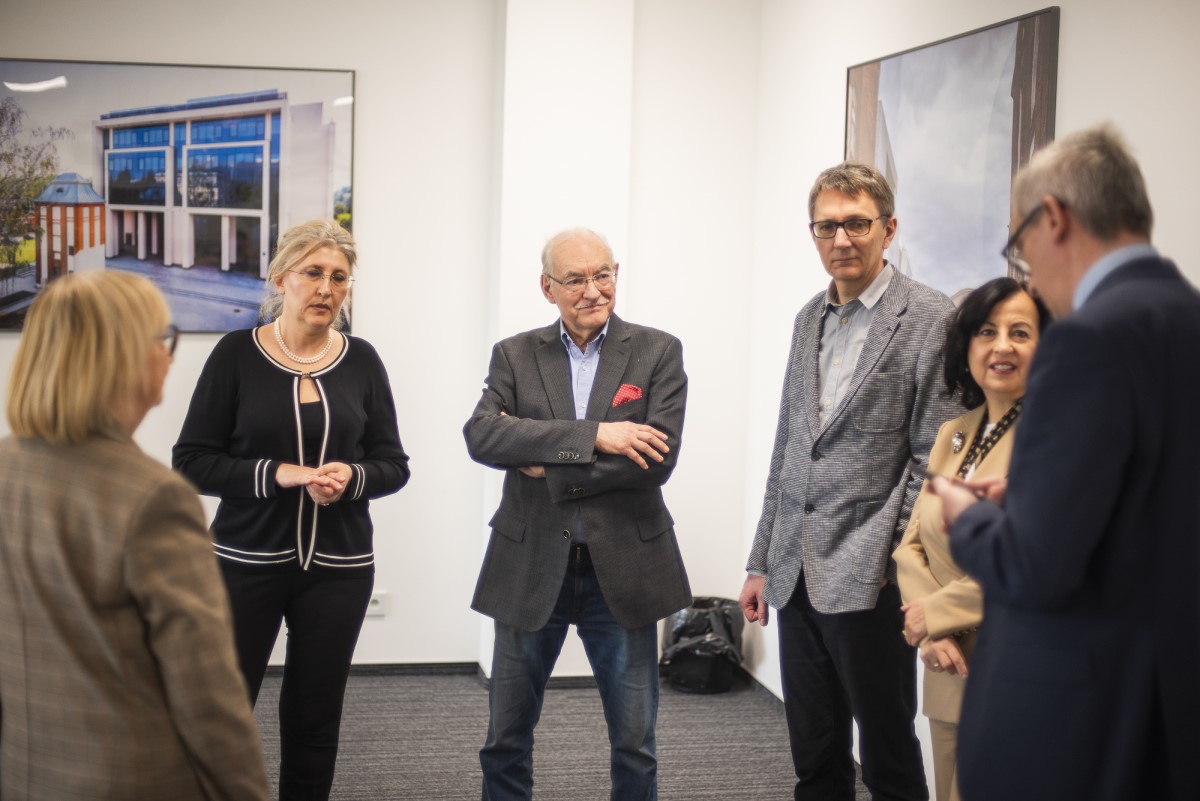Joining the National Library of Chemical Compounds
The Faculty of Chemistry of the Lodz University of Technology has concluded an agreement with the National Library of Chemical Compounds (NLCC). The document was signed by the dean of the Faculty of Chemistry prof. Małgorzata Iwona Szynkowska-Jóźwik, and the deputy director for science, prof. Jarosław Dziadek, from the Institute of Medical Biology (IMB) of PAS.
NLCC, established at the Institute, is financed by the Ministry of Science and Higher Education as one of the projects of the Polish Road Map of Research Infrastructure. The library belongs to the POL-OPENSCREEN consortium – the Polish Platform of Screening Infrastructure for Biological Chemistry, which is part of the European consortium EU-OPENSCREEN.
What is this library?
Prof. Zbigniew J. Leśnikowski, head of NLCC and coordinator of the POL-OPENSCREEN consortium, explains: “NLCC is the first non-commercial bank of chemical compounds in Poland that have been synthesized in national chemical laboratories for the needs of various research projects. Instead of ending up on shelves, these compounds will be further used.”
Deposited compounds are initially bioprofiled in NLCC, i.e. tested for their basic physicochemical properties, and then made available to users for screening and other scientific research. The results of screening tests are available to scientific institutions and industry, of course on agreed terms protecting intellectual property.
Why is it important?
Creating a network of academic libraries enables searching for new biological activities of chemical compounds, which can be used, for example, in designing new anticancer drugs or in the fight against civilization diseases. It is also worth adding that NLCC not only provides the research infrastructure and a growing collection of compounds, but also organizes symposia and workshops. This promotes the creation of a community of chemists, pharmacologists and biologists interested in searching for bioactive compounds, providing a platform for broad cooperation.
NLCC contains unique compounds unavailable in commercial libraries. Prof. Leśnikowski emphasizes: “We have been collecting chemical compounds for about 1.5 years. Currently, we have slightly over 1000 of them, but the collection is growing rapidly thanks to cooperation with Polish chemists.”
The agreement with the Lodz University of Technology will certainly contribute to the expansion of this collection. The Dean of the Faculty of Chemistry, Prof. Małgorzata I. Szynkowska-Jóźwik, appreciates the significance of the agreement: “We have been cooperating with the Institute of Medical Biology of the Polish Academy of Sciences for many years. Our scientists synthesize various compounds that will be deposited in the NLCC. This is a huge added value, because these compounds will be further tested for various biological activities and further use by domestic and foreign entities.”
The signing of the agreement was accompanied by talks in which Prof. Agnieszka B. Olejniczak, head of the IMB PAS Screening Laboratory and the vice-rector for science of the Lodz University of Technology, Prof. Łukasz Albrecht, also participated.
Dr. Ewa Chojnacka
spokesperson for Lodz University of Technology
NLCC translation
